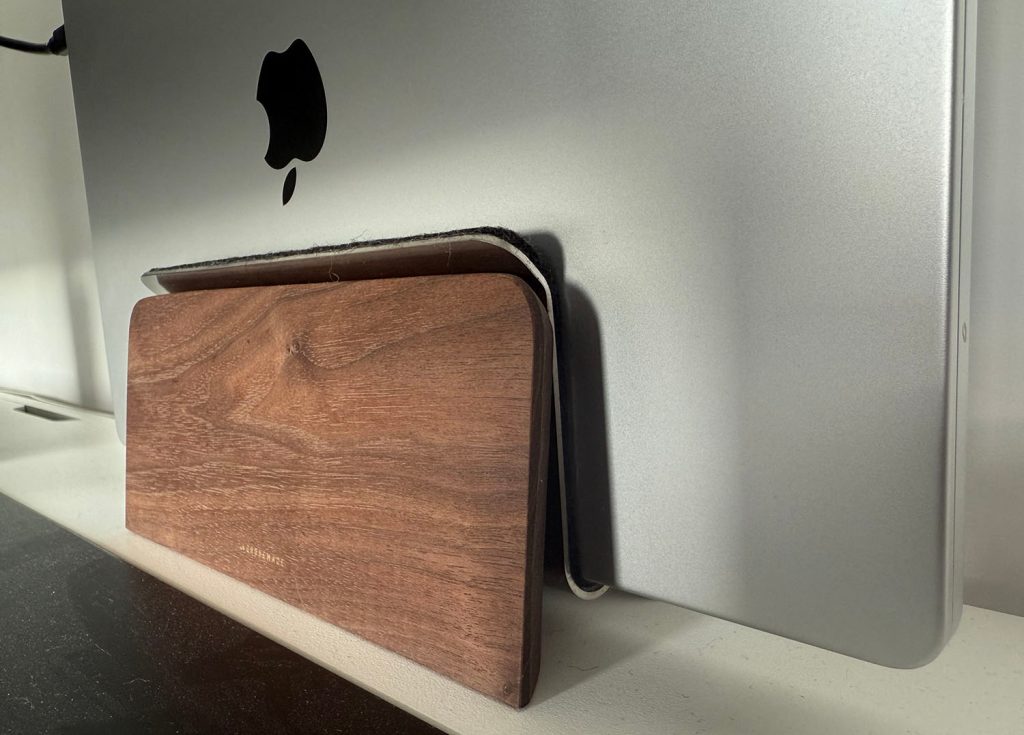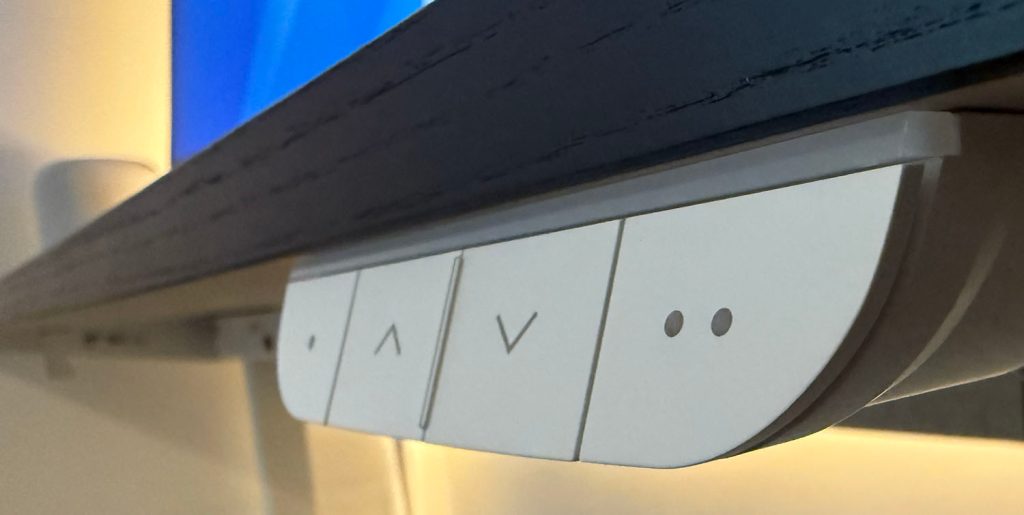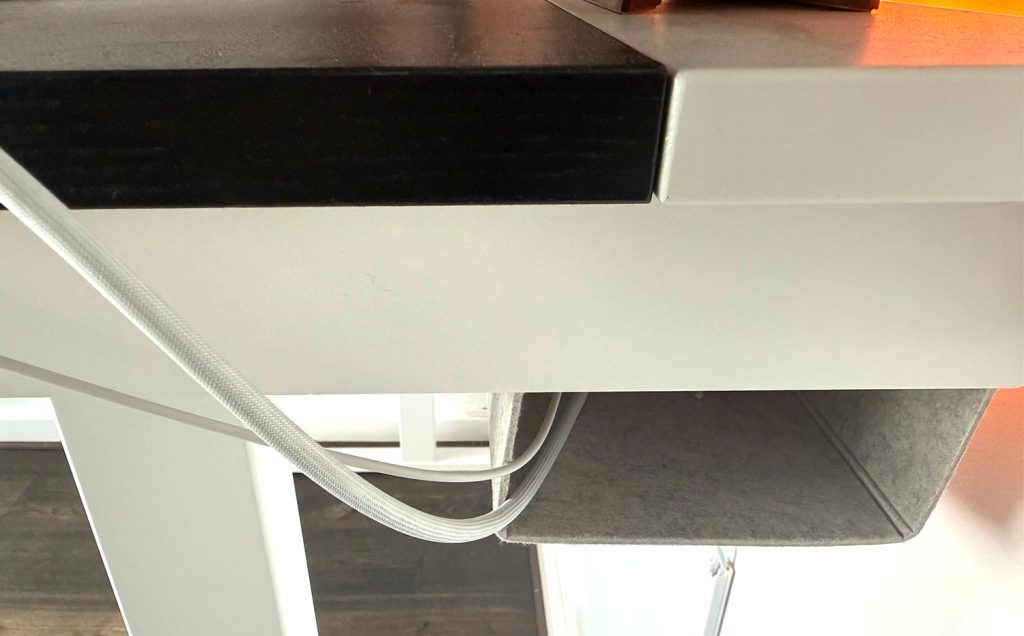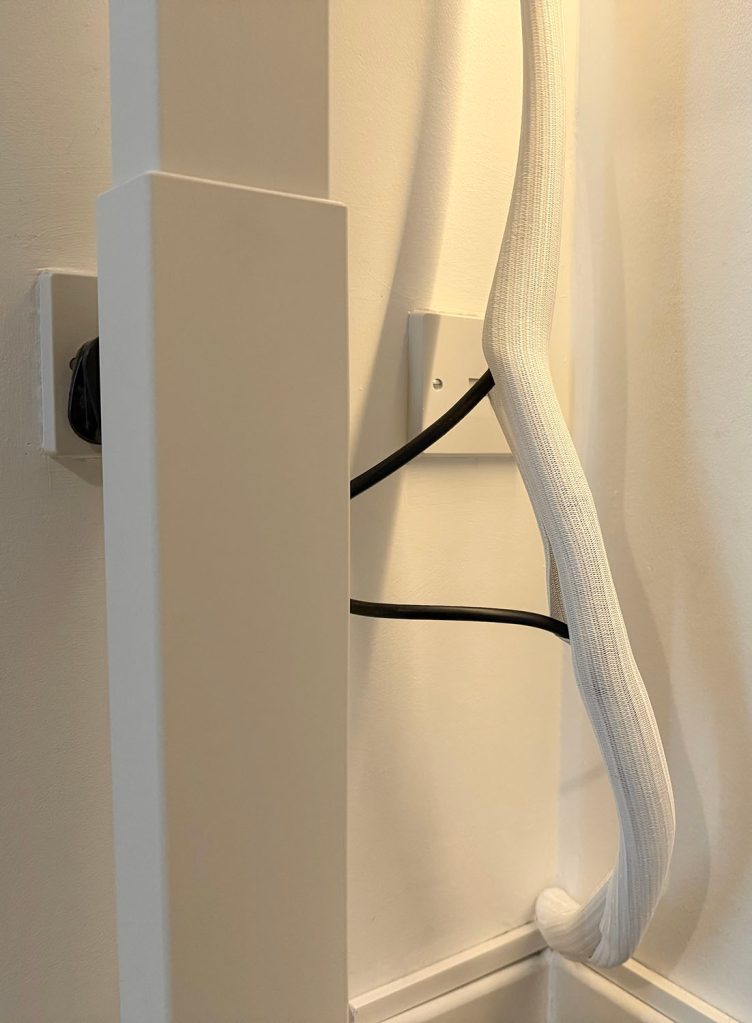I’m very late to the sit-stand desk party, I know. My colleague Jeff Benjamin first made the switch way back in 2016, and Apple did the same for all its Apple Park employees in 2018.
I’d so far been using a large custom-made desk, but there are two reasons that now seemed a good time to make a switch …
Why a change of desk?
First, I’m going to be moving to a new apartment in the not too distant future, which will be more central at the cost of having less room, requiring a desk which is a little smaller than the average size county.
Second, there are fewer things I need it to accommodate. There’s a saying that expenditure rises to meet income, and I’ve experienced the kind of desk equivalent to this: because my desk was so large, I could keep a lot of stuff on it and under it, and did so. Scanner, external drives, two Macs, microphone, joystick.
The scanner was long since replaced by an iPhone app, and a lot of the other stuff is only used occasionally, so it made more sense to keep it in a drawer when not in use.
Yes, my 49-inch monitor now spans almost the entire width of the desk, and I do currently still have the overkill of stereo-paired HomePods – though this may change – but most of the other kit has gone.
With fewer things permanently connected, that also meant the Brydge powered dock was no longer needed, so I’ve swapped that out for a simpler and beautiful Grovemade laptop stand, which sits behind the monitor:

I could have just had the Mac flat on my desk under the monitor, but this takes up less room, and I’ve also found that a vertical stand helps with cooling when doing heavier-duty things like video editing.
The switch to a sit-stand desk
I’d been intrigued by these for a while, but had wondered whether the novelty might wear off, and left the motor unit gathering dust.
However, I canvassed colleagues who have them, and there was a clear majority experience that yes, months later, they do still regularly switch between sitting and standing modes.
My particular choice turned out to be very limited, because I was trying to constrain the size to 140cm width and 60cm depth (55 inches by 24 inches). The reason for the latter limit will become clear when I finally make the move and can show it in its new home.
That left me buying the Ikea Mittzon. My personal view of Ikea furniture is that it marries very low-quality ‘wood’ (particle board with a thin veneer) with very high-quality mechanisms that are tested to insane levels. My expectation is that I’ll replace the desktop itself with a solid wood one further down the line, but the black ash veneer does the job for now, and I fully expect the mechanism to last forever.
This has a simple switch panel with two memory positions, and up/down buttons for manual adjustment.

The cable management seemed incredibly crude, and I fully expected to have to replace it. It’s a simple three-section folding felt box-section tube. However, it comfortably accommodates two power strips and all my power bricks, and seems a lot more solid than I expected, so I’ll retain that unless it later fails.

The remaining cable management challenge was the desk and power brick cables. Those can’t be fastened down in any way, of course, because they need to extend and contract with the desk movement. I used a simple wrap-around tube to make this as neat as is possible.

Three surprises, all of them pleasant
I’ve had the desk for a little over a month now, and was pleasantly surprised in three ways.
First, I’m using it a lot. I had expected I might remember to switch to stand mode once or twice a day, and stand for 5-10 minutes at a time. The reality, however, has been that I switch between sitting and standing at roughly 30-40 minute intervals, and I stand almost as much as I sit.
Second, the adjustability is useful for more than just sitting versus standing. For example, my normal seated position is with my chair in a low position, my feet flat on the floor. But sometimes I raise my chair a little, and raise the desk to match. Additionally, in my new apartment my desk will sit next to a worktop, and I’m thinking I may raise it to match the level when not in use, so it blends in more.
Third, and most importantly, the desk has proven absolutely fantastic for my back!
As someone who has spent most of my career sitting, including for silly hours back in my tech research days, I have long suffered from (thankfully mild) lower back pain. Since using this desk, however, that has dramatically diminished.
What now happens is that I start feeling low-level pain after either sitting or standing for around 30-40 minutes. That acts as a trigger to change position, and the pain is relieved. Rinse and repeat.
Forget the hyperbole – it’s all about flexibility
There’s been a fair amount of controversy over the whole “sitting is the new cancer” idea, with most experts describing that as pure hyperbole. Jeff ended his piece with this:
lockquote class=”wp-block-quote is-layout-flow wp-block-quote-is-layout-flow”>
It’s not good to stand for 8 hours straight, just like it’s not good to sit for 8 hours straight. Use moderation. That’s what makes the PowerUp so nice, because it can transform in seconds between the two.
Whatever the case may be, there’s no way that I’d ever want to go back to a “normal” desk. UpDesk has added a fun new dimension to my daily routine that just might make me a little more active. For that I am appreciative.
lockquote>
That’s exactly my view too. This has been one of the best office-related decisions I’ve ever made, and there’s no going back.
FTC: We use income earning auto affiliate links. More.




![[CITYPNG.COM]White Google Play PlayStore Logo – 1500×1500](https://startupnews.fyi/wp-content/uploads/2025/08/CITYPNG.COMWhite-Google-Play-PlayStore-Logo-1500x1500-1-630x630.png)